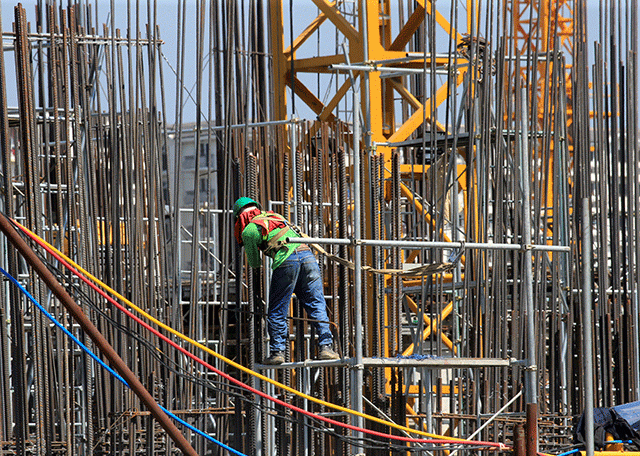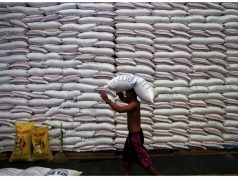
An oil-driven inflation shock triggered by the war in Ukraine is forcing Asia’s policymakers to rethink their assumptions for 2022, with the risks of weak growth coupled with surging prices adding unwanted complexity to monetary setting plans.
Having largely lagged their Western counterparts in scrapping harsh pandemic restrictions, Asian economies, among the largest consumers of global commodities, now face the threat of crippling inflation.
For some central banks in the region, such as New Zealand, South Korea and Singapore, deep worries about prices and imported inflation have already set off aggressive policy tightening cycles. For most others, however, the need to sustain a fragile recovery from the pandemic slump is likely to complicate deliberations.
Matt Comyn, chief executive at Commonwealth Bank of Australia CBA.AX, the country’s largest retail bank, said his customers are already talking about surging input costs for their businesses.
“Raising interest rates doesn’t necessarily help that – it’s a different funding proposition for central banks,” he told a conference this week. “They’re taking extreme steps because extreme steps are warranted in light of what’s happening in Ukraine and Russia.”
Analysts worry the Ukraine crisis could upend the region’s economy through various channels including slowing trade, though the biggest hit will likely come from soaring energy costs.
Barclays expects the energy shock to knock 0.3-0.5 of a percentage point off China’s economic growth by boosting output costs, curbing consumption and dampening external demand.
Soaring fuel costs will deal a severe blow to the economy of resource-poor Japan, forcing the central bank to keep monetary policy ultra-loose even as inflation creeps up towards its elusive 2% target. Read full story
Fending off the hit to growth from high fuel costs appears to be the priority for many other Asian central banks.
Even though rising fuel costs and the risk of abrupt capital outflows keep pressure on them to tighten policy, many emerging Asian central banks appear to prefer going slow in raising interest rates.
Bigger risk if war persists
Thailand might miss the government’s forecast of 3.5-4.5% economic growth this year due to the impact of the Ukraine crisis on tourism, trade and domestic consumption, its finance minister Arkhom Termpittayapaisith said on Tuesday.
While inflation is already at a 13-year high, Thailand’s central bank won’t hike rates any time soon, analysts say.
“If we acknowledge that the root of inflation is from a supply shock rather than excessive demand, it is prudent to keep monetary policy accommodative,” said Kobsidthi Silpachai, head of capital markets research at Kasikornbank.
The Philippines’ central bank warned that under a worst-case scenario of oil prices reaching $120-$140 a barrel this year, inflation would average between 4.4% and 4.7% – above its 2.0-4.0% target band.
But Bangko Sentral ng Pilipinas Governor Benjamin Diokno said in a statement on Sunday the country has sufficient buffers, signaling that it won’t resort to imminent rate hikes to counter capital outflows. Read full story
Australia’s central bank chief said on Wednesday the Ukraine conflict was a major downside risk for the global economy, with the biggest impact coming through inflation.
However, he noted underlying inflation in Australia was still well below levels seen in the United States and Britain.
“The recent lift in inflation has brought us closer to the point where inflation is sustainably in the target range. But we are not yet at that point,” Reserve Bank of Australia (RBA) Governor Philip Lowe said on Wednesday.
“We can be patient in a way that countries with substantially higher rates of inflation cannot,” he said in a sign the RBA will carefully assess the impact of the crisis before likely raising rates later in the year. Read full story
Some analysts, however, warn of bigger challenges for Asian policymakers if the war and rising fuel costs persist, particularly for those reliant on fuel imports.
“Inflation has been fairly subdued in many Asian emerging economies, allowing central banks to maintain easy monetary policy,” said Toru Nishihama, chief economist at Dai-ichi Life Research Institute in Tokyo.
“But they could be forced to tighten” if their economies and currencies weaken and lead to higher inflation, he said.
—Reporting by Leika Kihara, Karen Lema, Orathai Sriring, Wayne Cole and Byron Kaye; Editing by Sam Holmes









